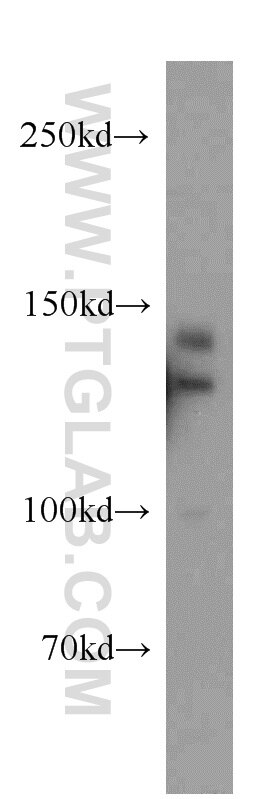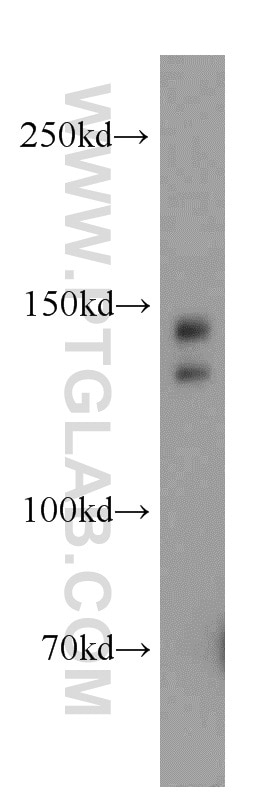Anticorps Polyclonal de lapin anti-TRERF1
TRERF1 Polyclonal Antibody for WB, ELISA
Hôte / Isotype
Lapin / IgG
Réactivité testée
Humain, souris
Applications
WB, IHC, ELISA
Conjugaison
Non conjugué
N° de cat : 20062-1-AP
Synonymes
Galerie de données de validation
Applications testées
| Résultats positifs en WB | cellules MCF7, cellules MCF-7 |
Dilution recommandée
| Application | Dilution |
|---|---|
| Western Blot (WB) | WB : 1:200-1:1000 |
| It is recommended that this reagent should be titrated in each testing system to obtain optimal results. | |
| Sample-dependent, check data in validation data gallery | |
Applications publiées
| IHC | See 1 publications below |
Informations sur le produit
20062-1-AP cible TRERF1 dans les applications de WB, IHC, ELISA et montre une réactivité avec des échantillons Humain, souris
| Réactivité | Humain, souris |
| Réactivité citée | Humain |
| Hôte / Isotype | Lapin / IgG |
| Clonalité | Polyclonal |
| Type | Anticorps |
| Immunogène | Peptide |
| Nom complet | transcriptional regulating factor 1 |
| Masse moléculaire calculée | 132 kDa |
| Poids moléculaire observé | 132-140 kDa |
| Numéro d’acquisition GenBank | NM_033502 |
| Symbole du gène | TRERF1 |
| Identification du gène (NCBI) | 55809 |
| Conjugaison | Non conjugué |
| Forme | Liquide |
| Méthode de purification | Purification par affinité contre l'antigène |
| Tampon de stockage | PBS avec azoture de sodium à 0,02 % et glycérol à 50 % pH 7,3 |
| Conditions de stockage | Stocker à -20°C. Stable pendant un an après l'expédition. L'aliquotage n'est pas nécessaire pour le stockage à -20oC Les 20ul contiennent 0,1% de BSA. |
Informations générales
TRERF1, also named as BCAR2, RAPA and TREP132, activates transcription of CYP11A1. TRERF1 interaction with CREBBP and EP300 results in a synergistic transcriptional activation of CYP11A1. The antibody recognizes the C-term of TRERF1.
Protocole
| Product Specific Protocols | |
|---|---|
| WB protocol for TRERF1 antibody 20062-1-AP | Download protocol |
| Standard Protocols | |
|---|---|
| Click here to view our Standard Protocols |
Publications
| Species | Application | Title |
|---|---|---|
Cancer Manag Res MIR31HG Expression Predicts Poor Prognosis and Promotes Colorectal Cancer Progression. |



